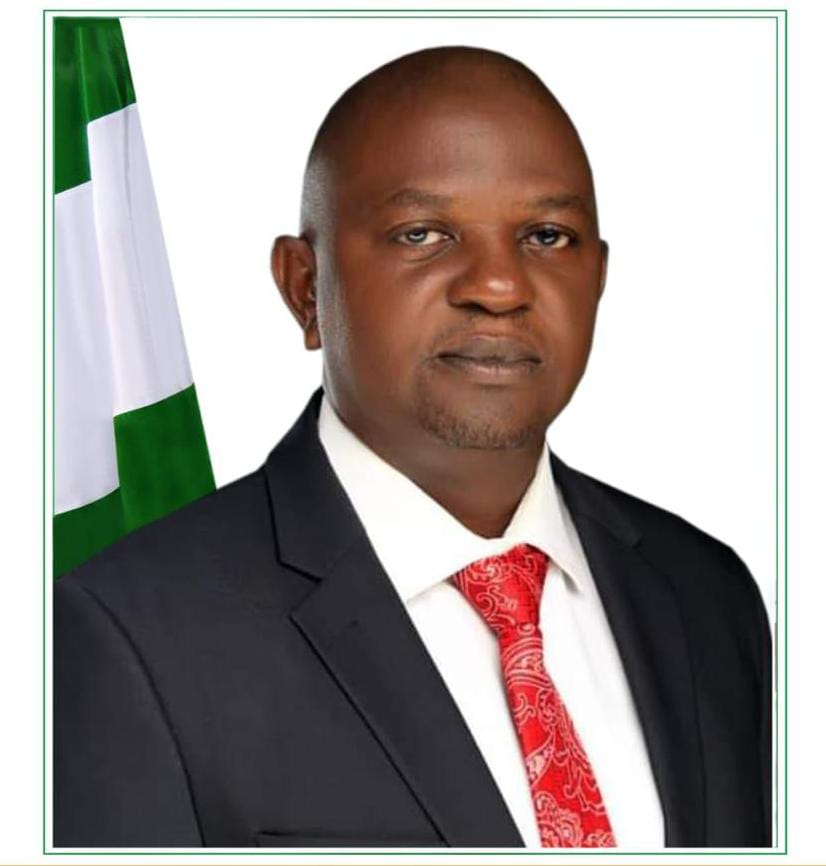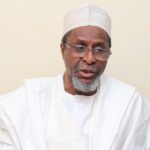Minister of Water Resources and Sanitation, Engr. Joseph Utsev Terlumun, says the completion of storage dams across Nigeria is key to controlling water flow during the flood season and enhancing water supply for domestic and industrial use.
In a recent interview in Abuja, Minister Terlumun provided critical insights into Nigeria’s dam projects and their alignment with President Tinubu’s renewed hope agenda.
“Nigeria boasts over 408 storage dams, comprising 142 large dams, 59 medium dams, and 207 small dams. With an estimated combined storage capacity of 93.623 billion cubic meters, these dams serve various multi-purpose uses, including irrigation, flood control, fisheries, water supply, and hydropower,” the Minister revealed.
He further explained the ownership distribution, stating that 80% of the dams belong to the Federal Government, with 13% owned by states and the remainder by private organizations.
Highlighting the completion status, Minister Terlumun noted that ongoing projects are at various stages, with an overall completion rate of 53%.
However, he expressed the Ministry’s commitment to raising this figure to 65% by the end of 2024, while also initiating new projects targeting 36% completion by the same period.
Minister Terlumun underscored the centrality of water security in the President’s agenda, emphasizing the Ministry’s alignment with key priorities such as food security, poverty alleviation, and economic growth.
He outlined a comprehensive action plan, including dam rehabilitation, water supply enhancement, and flood management initiatives.
Additionally, the Minister highlighted various projects commissioned under his tenure since his assumption and the Minister of State, Bello Muhammad Goronyo in August 2023, ranging from dam constructions to water supply initiatives across different states.
According to him: “The ministry has overseen the commissioning of several critical projects, including:- The Odo Ape Dam in Kabba Bunnu Local Government, Kogi State, Lessel Dam in Ushongo Local Government Area of Benue State, Rafin Yashin Dam in Minna, Niger State.
“Commissioning of PEWASH projects at Zainab Bukuchuwa Women and Children Hospital, Gombe, Commissioning of PEWASH projects at Government Science and Technical College, Gombe, Commissioning of Songhai Integrated Model Farm in Goronyo LGA Sokoto State, Commissioning of Songhai Integrated Model Farm in Calabar, Cross River State.
“Bottling facilities at Hadeija Ja’amaare River Basin Development Authority, Kano State, and Anambra Imo River Basin Development Authorities, A 1,000-litre corrugated overhead steel tank serviced by 3 boreholes and powered by a hybrid solar inverter at Masamawa, Birni Kudu, Jigawa State.
“A 200,000-litre corrugated surface steel water tank serviced by a hybrid solar inverter, A 135-kilowatt capacity solar system installed at Birni Kudu Water works as a replacement for diesel-powered generators both for intake and booster pumps.
“Water Supply Projects at Emir of Ilorin’s Palace, police Headquarters, and University of Ilorin, by Lower Niger River Basin Development Authority in Kwara State, Soil and GIS Laboratories at Lower Benue River Basin Development Authority, Markurdi, Benue State.”
Addressing sanitation challenges, Minister Terlumun outlined the Ministry’s nationwide campaign to improve sanitation and eradicate open defecation. Through initiatives like the “Clean Nigeria: Use the Toilet Campaign,” significant progress has been made in promoting basic sanitation services and achieving Open Defecation Free status across numerous local government areas.
He further stated that there has been a renewed focus on empowering River Basin Development Authorities (RBDAs) to enhance their performance and meet the needs of Nigerians.
Through initiatives such as the partial commercialization of RBDAs and the introduction of Key Performance Indicators (KPIs), he explained that the Ministry is driving efforts to improve infrastructure development, revenue generation, and service delivery within the water sector.
He said that recognizing the imperative of sustainable development and climate resilience, the Ministry has spearheaded initiatives to harness renewable energy and mitigate the impacts of climate change.
Utsev maintained that projects like the installation of solar-powered systems at water treatment plants and the promotion of integrated agricultural systems underscore their commitment to environmental sustainability and resilience-building.
“The ministry’s proactive approach in empowering RBDAs and promoting renewable energy initiatives signifies a broader commitment to sustainable development and climate resilience within the water sector.
“These efforts align with national objectives and underscore Nigeria’s determination to address critical challenges while advancing towards a more sustainable and resilient future,” he stated.



